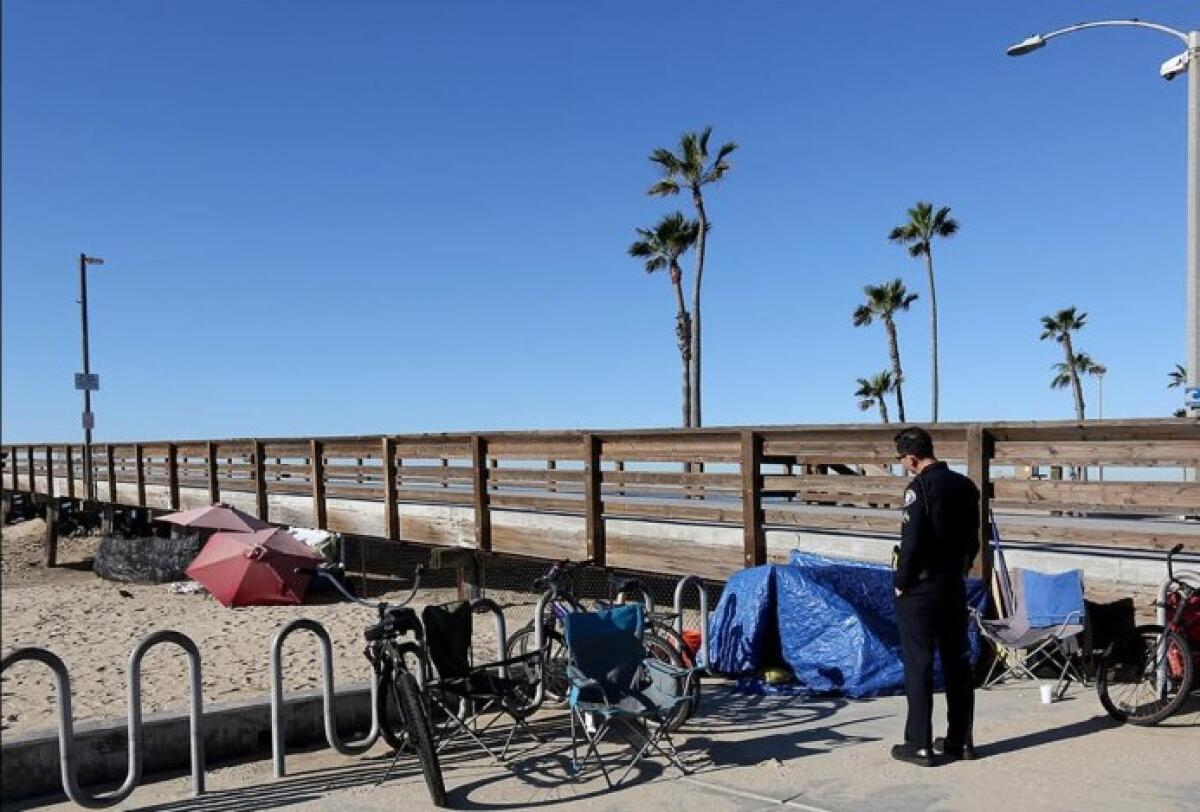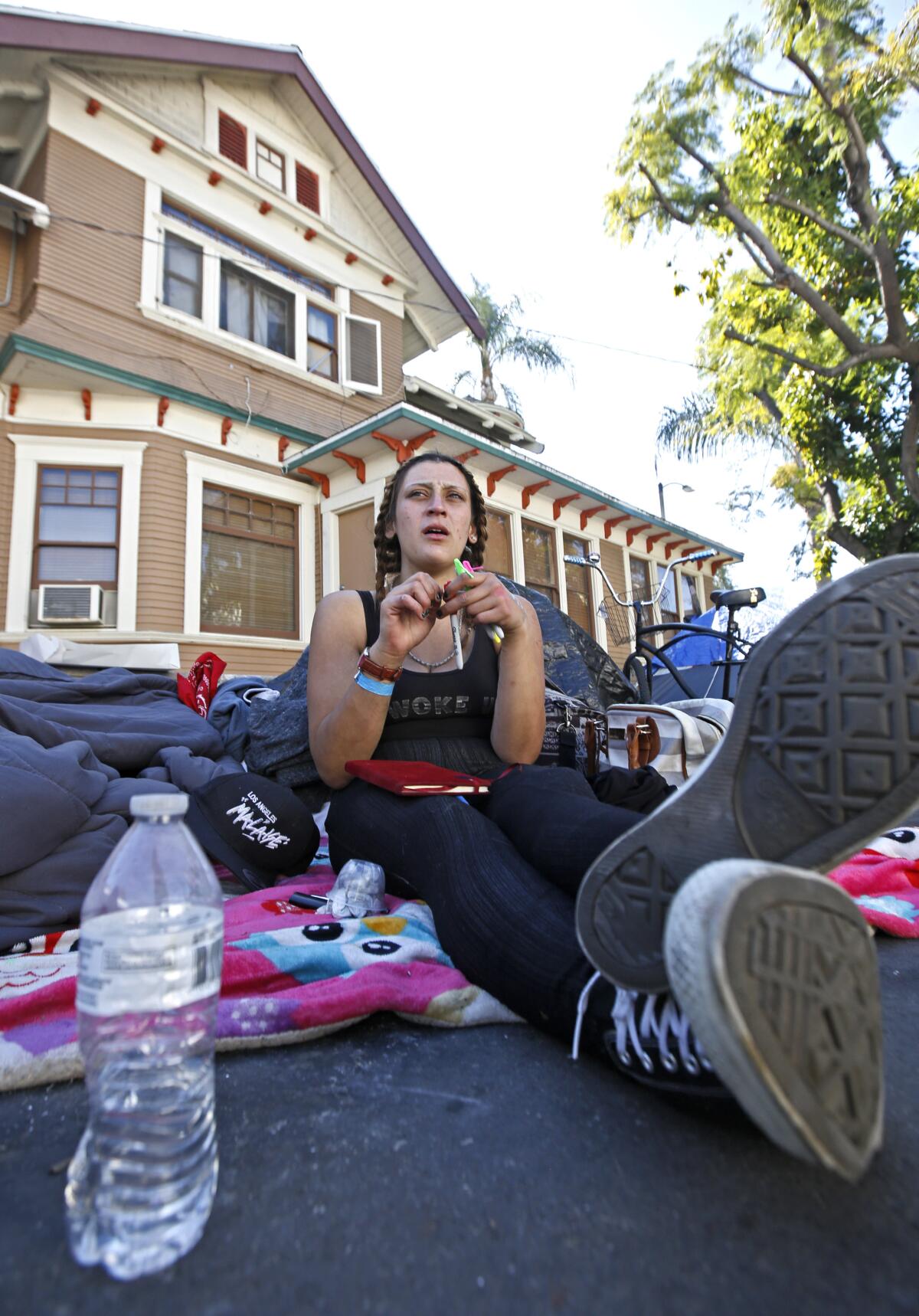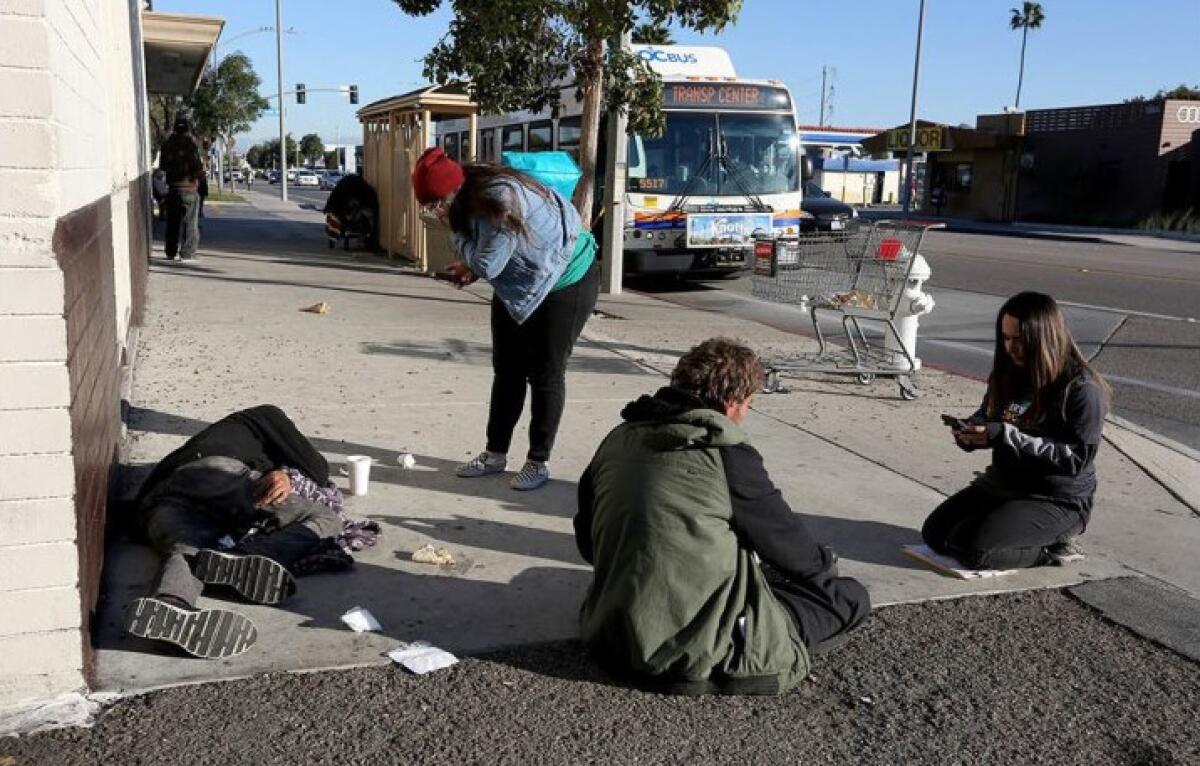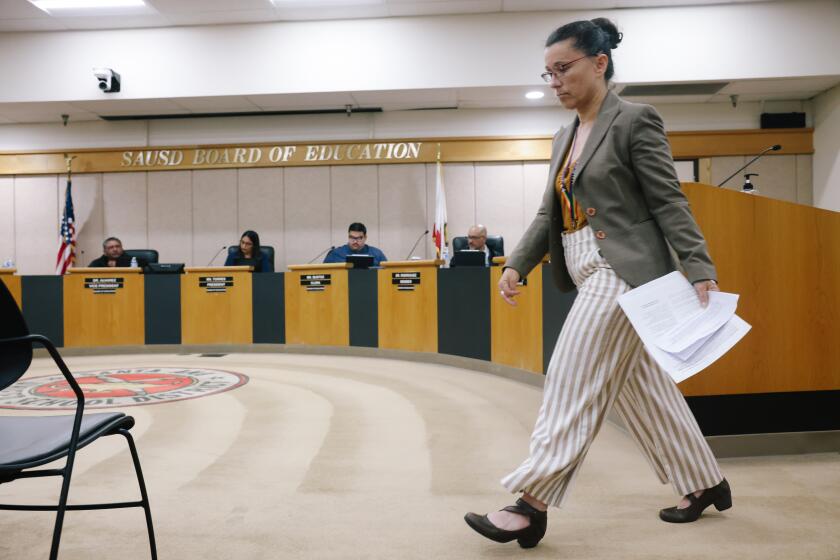Orange County receives more funding to convert motels into housing for homeless

- Share via
Months after Orange County tallied the highest number of homeless deaths in a single year, the county has received $6 million in funding to convert another Stanton motel into permanent supportive housing.
The motel conversions are part of a statewide effort called Project Homekey, which entails purchasing and rehabilitating hotels, motels, vacant apartments and other buildings to house people experiencing homelessness. The program was introduced by the state amid the pandemic as a way to transition homeless people to permanent housing from Project Roomkey, another pandemic-era state program that placed homeless Californians in hotel rooms.
During the first round of Homekey funding, the county purchased the former Stanton Inn & Suites and Tahiti Motel to convert into 132 units of permanent supportive housing. Over the last few weeks, the county has been waiting to hear back from the state on whether it would receive funding on a second round of Homekey proposals in Stanton, Costa Mesa and Huntington Beach.
The $6 million the county announced this week will go toward converting the former 21-room Riviera Motel in Stanton. This comes on the heels of the county recently receiving $17 million in funding to convert a former Quality Inn and Suites in Huntington Beach. The Costa Mesa project is still being considered.

This second round of Homekey proposals was spearheaded by county Supervisor Katrina Foley, who said over the phone on Wednesday morning that after she was elected to the Board of Supervisors about a year ago, she toured the Stanton facilities and decided to pursue expanding the Homekey program in the county. After calling a meeting with city leaders, four cities reached out to work with the county on identifying suitable properties that could be converted. That eventually led to the Huntington Beach, Costa Mesa and Stanton proposals.
In addition to those cities, Anaheim is also waiting to hear back from the state on whether it will receive Project Homekey funds to convert a 119-room motel. Foley said she is also working on identifying a Homekey site in Santa Ana.
One of the incentives for cities to get involved in the program is to convert underutilized and crime-ridden properties into buildings that benefit the community. Foley called it a “win-win” for the community.
“It’s a win because it’s cleaning up a community area that had been a cause for concern by residents for many years,” Foley said. “And it’s a win because the county gets permanent supportive housing ... It’s also a win for people who are experiencing homelessness or on the verge of homelessness because now we have more units in the community where people can live.”
Stanton City Manager Jarad Hildenbrand said over the phone that the city has been “very happy” with the motel conversions.
“It’s really cleaned up the motels, and it’s everything that we expected and more,” Hildenbrand said.

Hildenbrand said the city specifically chose problematic motels for the program that attracted prostitution, drug dealing and other crimes. He said that the city is particularly excited about the addition of the 21-unit motel because it will create a “campus-like feel” with nearby Homekey properties.
Hildenbrand said the city will also build a community building and outdoor space on a vacant lot next to the properties.
“It’s really going to clean up Beach Boulevard for us and provide much needed affordable housing to the region,” he said.
Project Homekey sites also include wrap-around supportive services centered around counseling, healthcare, employment and veterans issues.
Foley said the goal of Homekey isn’t transitional housing. Rather, it’s meant to help people stay “in a permanent, stabilized environment.” The use of the program signifies a shift in how Orange County is combating homelessness.
For the past few years in Orange County, many cities have sought to deal with the spiraling homelessness crisis by opening emergency shelters. The effort largely took place in response to a lawsuit launched by homeless advocates against a few cities after the removal of a tent city near Angel Stadium. The decision in that lawsuit forced the county to reckon with the issue.
However, advocates contend that the shelters are not a solution to homelessness but a short-term fix to getting people off the street. Supportive housing is widely considered to be the key to ending chronic homelessness. A 2017 study by UC Irvine, Jamboree Housing and Orange County United Way found that it costs twice as much for someone to live on the street than to house them. Advocates have held that the county needs more permanent supportive housing to achieve the goal of ending homelessness.

In 2018, the county committed to add 2,700 permanent supportive housing units by June 2025. So far, 395 permanent supportive housing units have been completed toward that goal. Another 559 are under construction and 350 other units are in the process of being funded. The public can track the county’s progress online.
It isn’t yet clear how many homeless people are in Orange County, as the last completed countywide Point in Time homeless count — which tallied 6,860 homeless individuals — occurred in 2019. The county recently held another Point in Time count, but county spokeswoman Molly Nichelson said this week that the final numbers won’t be in until around the end of May.
Project Homekey will provide housing for these homeless individuals living on the street, as well as others struggling financially.
“Some people who could qualify and move into these units will have been in other housing, transitional housing, or maybe they’ve been living in a motel,” Foley said. “So I think we have to understand there’s a continuum of individuals experiencing homelessness, and the permanent supportive housing that the motel conversions provide will probably address many people on the spectrum of that continuum.”
Hildenbrand believes that Project Homekey could benefit other cities. He also said that Stanton is hoping to secure more Homekey projects in the future.
“So it really comes full circle with the permanent supportive housing units,” he said. “The thought is they go from the street to the navigation centers and then ultimately to permanent supportive housing. So the more permanent supportive housing units that we or cities bring online, it certainly helps everybody, and it helps free up some room in the shelters for the remaining homeless individuals that are still left out on the streets.”
All the latest on Orange County from Orange County.
Get our free TimesOC newsletter.
You may occasionally receive promotional content from the Daily Pilot.




